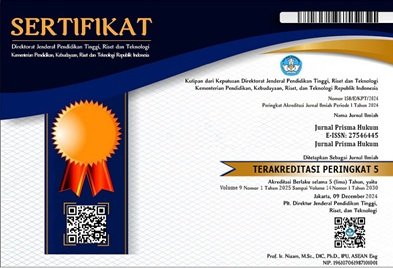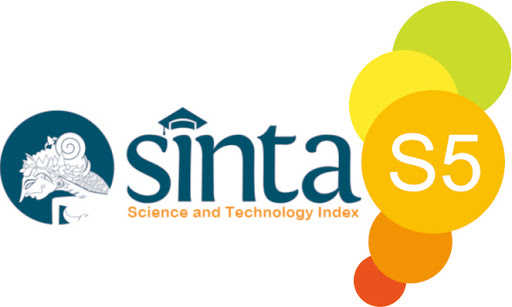PERLINDUNGAN DAN PENEGAKAN HUKUM TERHADAP EKSPLOITASI KARYA CIPTA MUSIK DI ERA DIGITAL DALAM PERSPEKTIF HAK KEKAYAAN INTELEKTUAL
Kata Kunci:
Hak Cipta, Perlindungan Hak Cipta Dan Lembaga Pengelola Hak CiptaAbstrak
Meningkatnya produksi informasi yang pesat membawa konsekuensi yang menguntungkan dan merugikan bagi penegakan hukum hak cipta. Di sisi positif, kemajuan teknologi, khususnya internet, telah memudahkan akses pembelian musik yang sah secara hukum melalui pasar daring. Namun, sisi negatifnya adalah maraknya tautan unduhan musik yang tidak sah di dunia maya, serta semakin mudahnya rekaman audio digandakan secara melawan hukum. Di Indonesia, ciptaan musik dilindungi secara hukum berdasarkan Undang-Undang No. 28 Tahun 2014 tentang Hak Cipta, yang memberikan hak eksklusif kepada pencipta untuk mengatur dan memperoleh keuntungan finansial dari karya mereka. Hak ini mencakup lirik lagu, komposisi musik, dan rekaman audio. Perlindungan ini secara otomatis diterapkan pada saat penciptaan suatu karya; meskipun pendaftaran formal tidak wajib, sangat disarankan untuk memperkuat klaim kepemilikan. Lembaga pengelola hak cipta seperti LMKN memiliki peran penting dalam melindungi karya cipta musik di zaman digital. Di tengah banyaknya platform digital dan kemudahan akses terhadap musik, lembaga ini memastikan pencipta musik mendapatkan manfaat ekonomis yang tepat untuk karya mereka. Dengan mengatur pemanfaatan karya secara komersial, lembaga ini menciptakan kepastian hukum dan mencegah pelanggaran hak cipta. Upaya pemerintah untuk merevisi Undang-Undang hak cipta serta kerjasama dengan beragam pihak, termasuk platform musik digital, semakin memperkuat perlindungan untuk karya musik. Keberadaan badan manajemen kolektif seperti LMKN sangat penting dalam menjembatani pencipta, pengguna musik, dan platform digital. Metodologi penelitian yang digunakan dalam penelitian ini adalah kajian pustaka dengan pendekatan yuridis normatif. Metodologi ini melibatkan pemeriksaan asas-asas hukum dalam peraturan perundang-undangan, literatur akademis, pendapat ahli, dan sumber referensi lain yang relevan. Terkait hal ini, pendaftaran lagu atau karya musik sebagai materi berhak cipta tidak diterima secara universal sebagai bukti definitif jika terjadi sengketa hak cipta daring. Jika salah satu pihak yang berkonflik sebelumnya telah mempublikasikan karya tersebut, individu yang dapat memberikan bukti yang dapat diverifikasi tentang keaslian ciptaannya akan diakui secara hukum sebagai pemegang hak cipta yang sah atas lagu atau komposisi yang disengketakan tersebut.
The rapid development of information generation has both positive and negative impacts on the enforcement of copyright laws. On the positive side, innovations in technology, particularly the internet, have facilitated easier access to purchasing legitimate songs or music through online marketplaces, promoting a more convenient method of acquiring copyrighted material. On the other hand, the negative side involves an increase in illegal download links for unlicensed music and the widespread ease of piracy of sound recordings, both in digital and physical formats. In Indonesia, legal protection for music-related copyrighted works is governed by Law No. 28 of 2014 on Copyright, which grants authors exclusive rights to oversee and benefit financially from their creations, including lyrics, musical compositions, and sound recordings. This protection applies automatically after the work is created; although registration is not required, it is advisable to do so to strengthen claims of ownership. Copyright management institutions such as LMKN have an important role in protecting musical copyright works in the digital age. In the midst of the many digital platforms and easy access to music, this institution ensures that music creators get the right economic benefits for their work. By regulating the commercial use of works, this institution creates legal certainty and prevents copyright infringement. The government's efforts to revise the copyright law and collaboration with various parties, including digital music platforms, are increasingly strengthening protection for musical works. The existence of a collective management body like LMKN is very important in bridging creators, music users and digital platforms. This research employed the library research method, a normative legal approach that involves analyzing statutory regulations, literature, expert opinions, and relevant legal precedents to gain a comprehensive understanding of the subject. Registration of copyright for songs and music alone does not serve as definitive proof in copyright disputes within the digital realm. In cases where one party has already made the work publicly available, the individual who can authenticate the legitimacy of the composition becomes the rightful holder of the copyright for the music or song in question.





